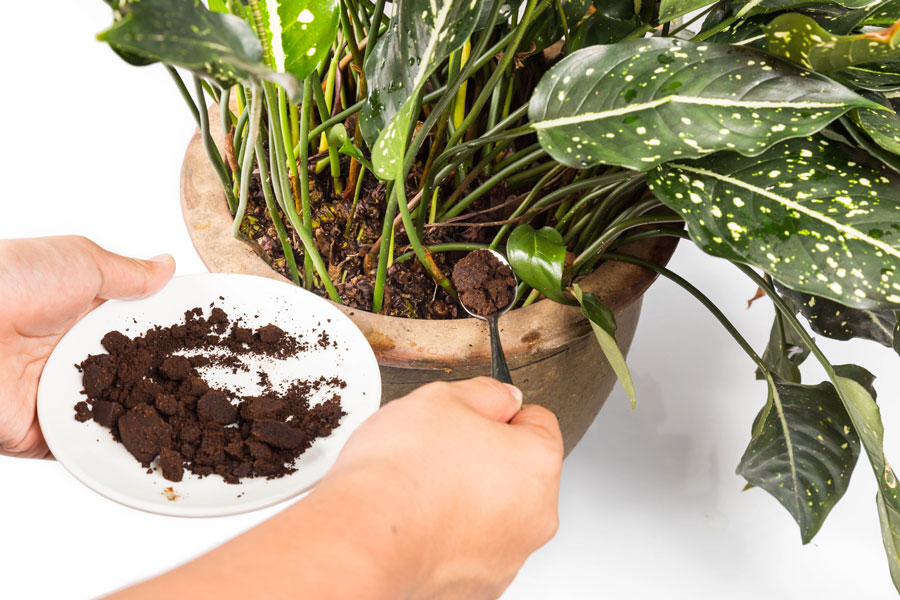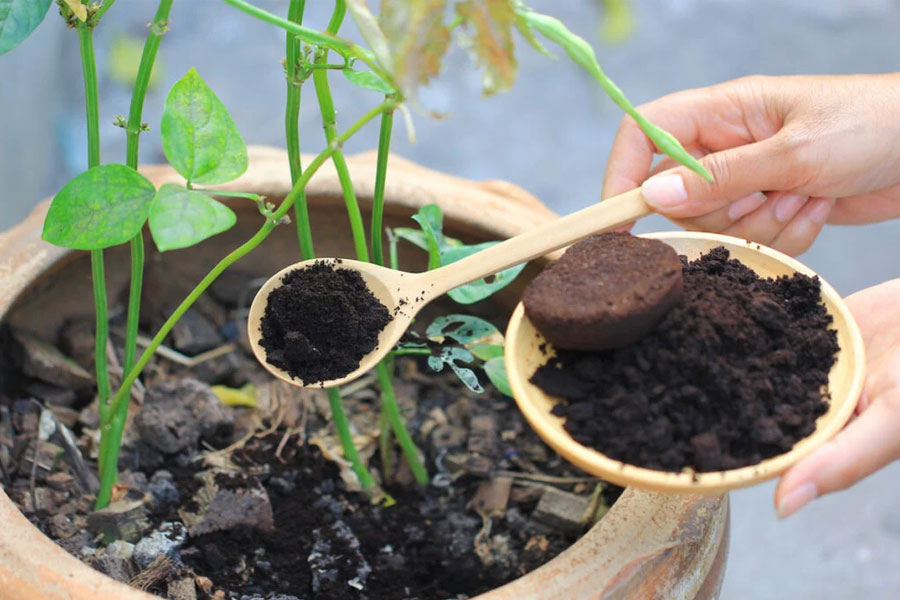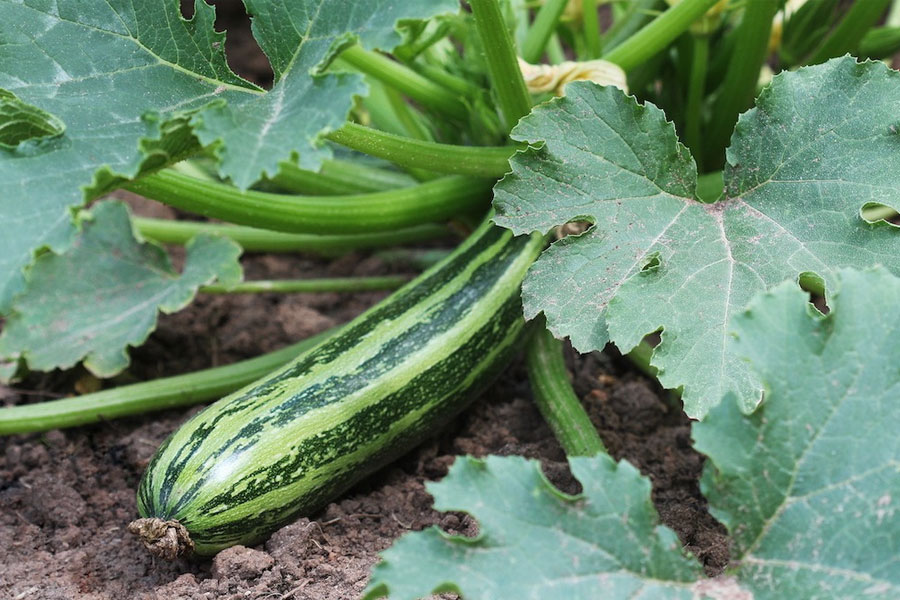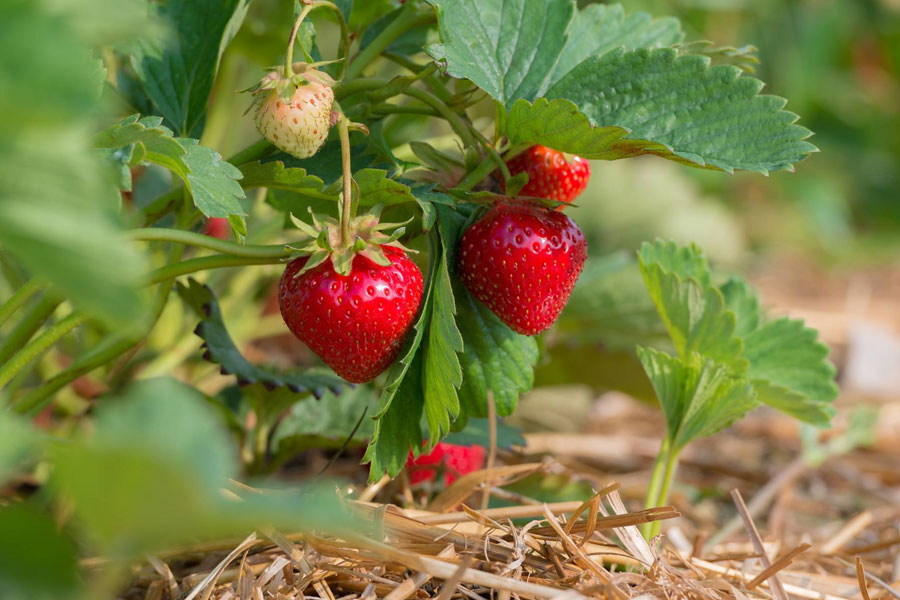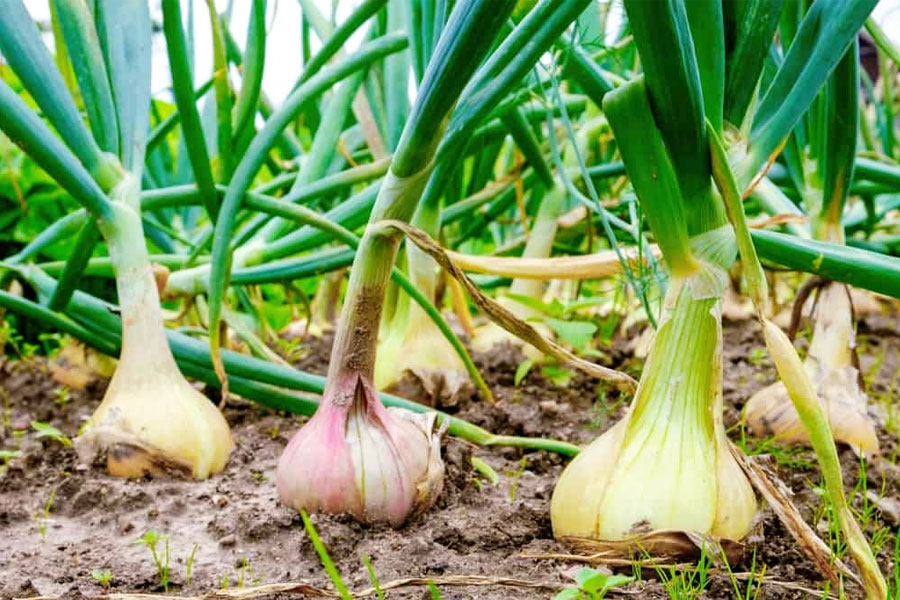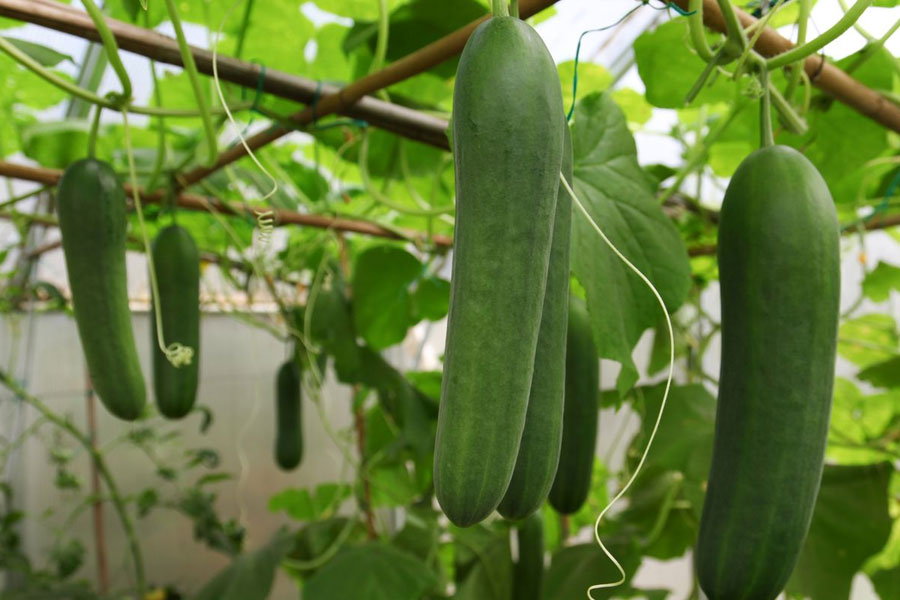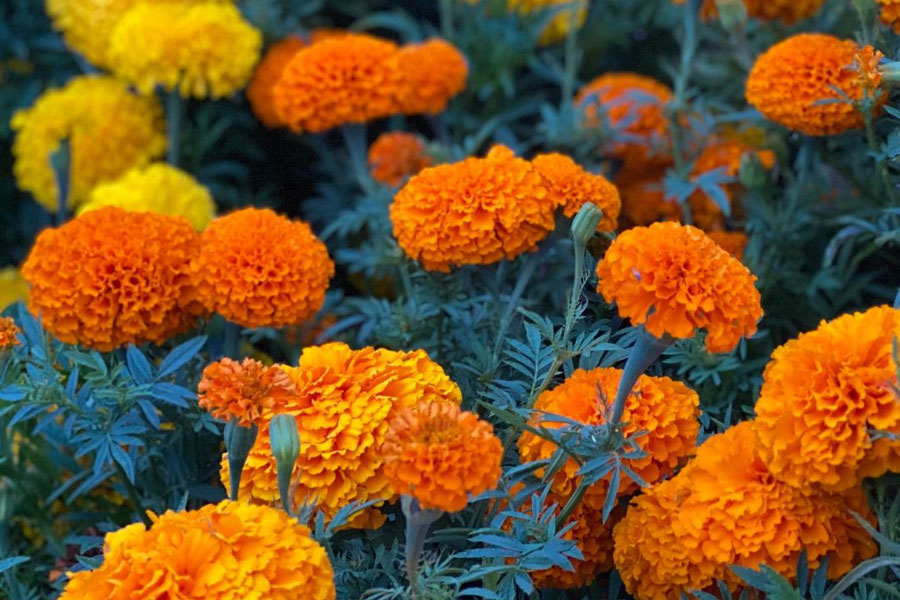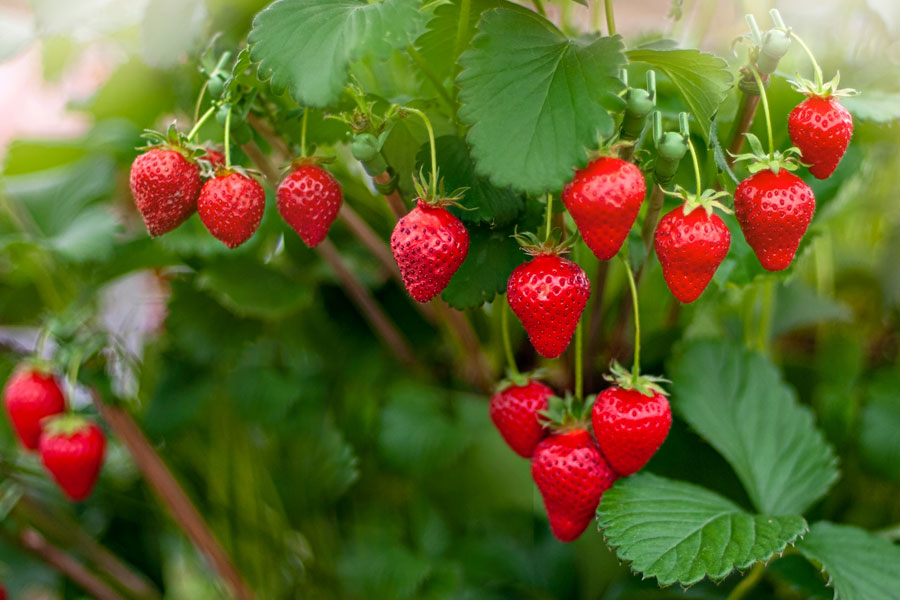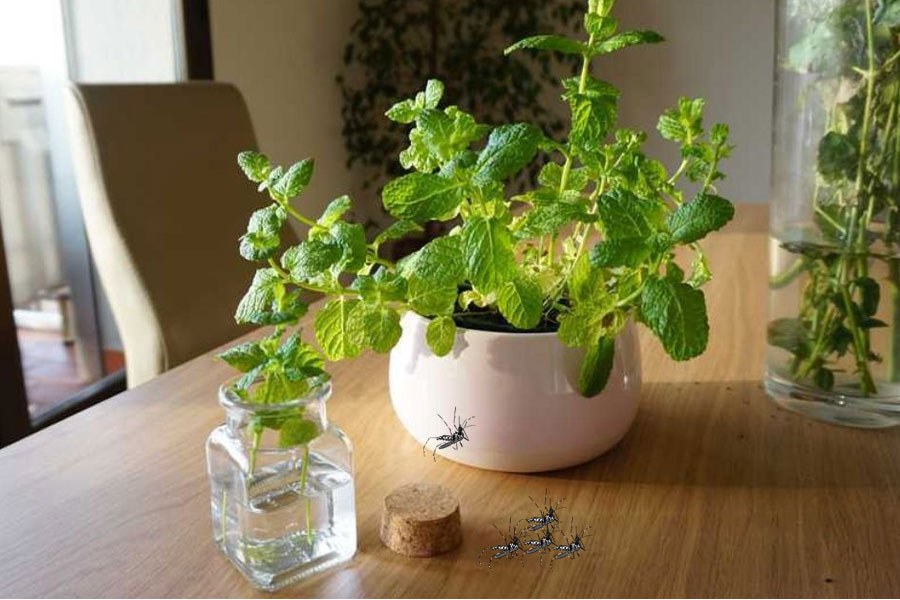
Some plants can serve more than simply decorative purposes in your garden. They have mosquito-repellent characteristics. Everyone knows how unpleasant mosquitoes are, and we have an eco-friendly solution to keep them away.
Use these plants as a repellant and unwind on your balcony while eating an evening snack. In this article, we will discuss some of the top mosquito-repellent plants you can cultivate with minimum effort.
How Do Plants Repel Mosquitoes?
Before chemical repellents were developed, humans used plants as natural insect repellents. Plants emit natural compounds, such as essential oils, as a defense mechanism against insects, viruses, and bacteria. These compounds cause plants to smell.
People have traditionally used these plants in gardens and as natural treatments to combat mosquitoes and insects. According to modern research, many of the compounds in these plants help discourage mosquitos, but they won’t function just sitting in your yard or container.
To achieve the optimum outcomes, you must compel the plant to release those compounds. You may accomplish this by trimming your plant, crushing its leaves, or rubbing a crushed leaf on your skin.
Top 15 Mosquito repellent plants:
Below, we have mentioned the top 15 mosquito-repellent plants.
1. Lavender

Most people enjoy the smell of lavender, and some even use lavender perfumes. Lavender not only has a fragrant scent but is also one of several plants that repel mosquitos. The lovely fragrance of lavender repels mosquitoes and is best used by growing it in the garden or pots near doorways and windows.
This includes both ‘Provence’ and ‘Grosso’ lavender. On a bright day, lavender naturally produces fragrant oils. In the evening, crush flower buds and leaves and massage them on your skin to eliminate bugs.
2. Marigolds

Marigolds, which are cheerful and vibrant, make a simple addition to any garden layout, whether in pots or planting beds. These vibrant annuals provide excellent color throughout the season. You may not know that marigolds have a powerful effect on numerous insects, including mosquitos, owing to the chemical pesticides they exude.
That’s why marigolds emit such a pungent odor when touched. Both flowers and leaves emit the chemicals, but blooms offer the most potent dose. Marigolds may be tucked into pots on the patio to make summer nights less bug-infested or used in the vegetable garden to deter pests as you tend plants.
3. Citronella Grass (Lemon Grass)

There are several reasons to grow lemongrass, including its vivid green leaves, tasty lemony stalks, and mosquito-repellent characteristics. Citronella oil, commonly used in many extremely efficient insect repellents, is derived from lemongrass (Cymbopogon citratus). To coax some bug-busting capabilities out of a plant, heat it with sunshine or burn it in a backyard fire pit or chiminea.
The mosquito repellent qualities range from 49 to 79 percent, so it’s not a foolproof method for keeping every biter at bay. To create a lush, full pot of lemongrass, start with a seedling in a 4-inch pot and transplant it into a 10-inch or more enormous container. It will fill the pot at the end of the growth season.
4. Catmint

Catnip essential oil has been clinically shown to repel mosquitos more efficiently than DEET. Catmint is a decorative relative of catnip, with fragrant leaves and lovely blooms. While less appealing to cats than catnip, catmint is also mosquito repellent. It is a perennial in Zones 4–9. Plant it near outdoor dining areas and entryways to repel mosquitos.
5. Rosemary

Rosemary is another plant worth growing to help repel mosquitos. The needle-like leaves are packed with oils. To activate its mosquito-repelling powers, crush the leaves and rub them on clothes, or add a few stems to your fire pit for richly perfumed, mosquito-repelling smoke.
You may also bundle and dry stems as smudge sticks by igniting one end of the bundle and allowing it to smoke on a fireproof surface.
6. Basil

There’s always a place for a pot or patch of basil in your outside living space. This multipurpose herb works well in the kitchen, natural medical closet, and insect-repellent arsenal. The beauty of basil is that it naturally repels mosquitoes as it generates oils that the insects dislike.
Lemon, cinnamon, and African blue basils are the most efficient mosquito repellents. Sweet basil, such as the Amazel basil type, can also repel these troublesome insects. Burning the leaves boosts the herb’s skeeter-repelling properties.
7. Bee Balm

Bee balm (Monarda) is well-known for its tendency to attract bees, butterflies, and hummingbirds, but it also has a reputation for repelling mosquitoes. Many insect-deterrent plants need crushing leaves or blossoms to release volatile oils, chemical compounds that give the leaves their aroma and repel insects.
But Bee balm is an exception to the norm. As it develops and blossoms in your yard, it emits smells that mosquitoes loathe. Bee balm is a perennial with various bloom colors and plant sizes.
8. Scented Geranium

Few plants have as much sensory appeal as fragrant geraniums. The category has a wide range of foliage types and plant sizes. Flowers are often smaller than those of standard bedding plants. When crushed or touched, geranium leaves emit chemical compounds that insects dislike.
The lemon-scented geranium has the most robust skeeter-repelling properties. In colder climates, bring plants indoors for the winter or use root cuttings to keep them alive until spring.
9. Chrysanthemum (Mums)

Chrysanthemums contain chemical components that serve as natural pesticides. These chemicals are processed and marketed as pyrethrum. It’s an effective natural insecticide for fleas, ants, ticks, silverfish, and bedbugs. Certain varieties of mums are more effective at repelling insects than others.
Painted daisies (Chrysanthemum coccineum) and Dalmatian daisies (Chrysanthemum cinerariifolium) are examples of commercially utilized pyrethrum extractants.
10. Thyme

Thyme, particularly red creeping thyme, has insect-repellent solid effects. The key is to crush the leaves and release the volatile oils. You may scatter crushed stems in outdoor seating areas or rub the leaves on your skin or clothing.
Burning thyme leaves also deters skeeters, offering 85 to 90% protection for up to 90 minutes. Silver thyme, English thyme, creeping thyme—all species provide some mosquito protection.
11. Mint

Mint is an effective bug repellent in the garden. Brush against plants to release the powerful mint oils in the leaves, or crush and apply on skin or clothes. Place gently damaged leaves (still attached to stems) in pockets or bouquets on your porch or patio to confuse and repel insects.
You may use any mint, such as spearmint, lemon mint, or peppermint. Mints spread rapidly in the garden. Always plant it in containers, even in beds, with the border of the pot at least an inch above the earth. Remember, Mint flowers attract helpful insects, including those that sting, such as yellow jackets.
12. Eucalyptus

Gray eucalyptus makes an attractive, low-maintenance, and aromatic container plant. The traditional eucalyptus odor repels mosquitoes and leaves release terpenoid chemicals that are responsible for pest-repellent effects.
This may be accomplished by placing plants in direct sunlight or burning foliage. For pots, ‘Silver Drop’ eucalyptus is an excellent choice, growing 24 to 36 inches tall and 12 to 16 inches broad. You may even arrange many pots to form a wall of mosquito-deterring beauty.
13. Lantana

Brush against lantana, and you’ll understand why it’s so efficient in repelling mosquitoes. It stinks! When the plants are warmed up by sunshine, their leaves emit fragrant molecules. Placing a few pots of lantana around your outdoor living areas creates a natural barrier against mosquitos that provides 27% to 42% protection.
In containers, give it ample light and consistent hydration. In planting beds, it can endure poor soil, dryness, and heat.
14. Hummingbird Mint

Hummingbird mint (Agastache), sometimes known as anise hyssop, does exactly what the name implies: it attracts hummingbirds, butterflies, bees, and other helpful insects. This plant comes in various colors, including purple, as shown in this ‘Blue Boa’ anise hyssop.
The entire plant smells like licorice. Some gardeners apply leaves to their skin to repel mosquitos.
15. Wormwood

Wormwood (Artemisia absinthium) provides a silver backdrop to brighten flowers in garden designs or bouquets. Its lovely leaves emit a powerful aroma that can be antiseptic, rotten, or even pleasant, depending on whose nose is sniffing it.
The perfume repels insects, especially mosquitos, and even particular creatures.
Effective Plant Care Ideas to Repel Mosquitos
Some yard and plant care ideas can help keep mosquitos at bay while getting the most out of your plants.
- Empty the Pots of Water: Standing or motionless water provides a breeding environment for mosquitos. Even one ounce of still water may support a large colony of mosquito larvae in your yard. To prevent mosquitoes from laying eggs, empty water pots are stored upside down. Put lids on rain buckets and drain rain gutters.
- Avoid Overwatering: Overwatering can create standing water in your garden and yard, which promotes mosquito breeding. Water should only be used as needed.
- Install a Fountain: Ponds, reservoirs, and pools in your garden or yard are breeding places for mosquitoes, mainly if they are still or stagnant. Install a fountain to assist in the flow and recycling of water while preventing mosquitoes from laying eggs. If you have birdbaths, consider upgrading to ones with fountains.
- Clear the Clutter: Remove excess vegetation, dead leaves, and plants from your garden or yard. Water pools in these regions might attract mosquitos.
- Plant Herbs in Common Spaces: Install mosquito-repelling plants at the perimeter of your garden, near companion plants, and in areas where you sit outside. You may install plants in movable pots and set them on your back deck or around your BBQ area. While you’re outside, you’ll be able to enjoy the scenery while also repelling insects.
Frequently Asked Questions
1. What are some effective mosquito repellent plants?
Effective mosquito repellent plants include citronella, lavender, basil, marigold, peppermint, catnip, rosemary, lemongrass, eucalyptus, and geranium.
2. How do mosquito repellent plants work?
These plants contain natural oils and compounds that mosquitoes find unpleasant, helping to deter them from the area.
3. Can mosquito repellent plants be grown indoors?
Yes, many mosquito repellent plants like basil, peppermint, and lavender can be grown indoors in pots near windows or doorways.
4. Do mosquito repellent plants require special care?
Most mosquito repellent plants have similar care needs, requiring sunlight, well-drained soil, and regular watering. Specific care depends on the plant species.
5. Can these plants be used in cooking?
Yes, some mosquito repellent plants like basil, rosemary, and peppermint can be used in cooking, adding flavor to dishes while also repelling mosquitoes.
6. Are mosquito repellent plants safe for pets?
Some mosquito repellent plants, like lavender and rosemary, are generally safe for pets, but others, like citronella and eucalyptus, can be toxic if ingested. Always check before planting.
7. How can I enhance the effectiveness of mosquito repellent plants?
Crushing the leaves of these plants releases more of their natural oils, which can enhance their mosquito-repelling properties.
8. Can I use these plants in a natural mosquito repellent spray?
Yes, essential oils from these plants can be mixed with water or a carrier oil to create a natural mosquito repellent spray.
9. Do mosquito repellent plants repel other insects?
Yes, many of these plants also repel other insects, such as flies, fleas, and moths, due to their strong scents.
10. Where should I plant mosquito repellent plants for best results?
Plant mosquito repellent plants around outdoor seating areas, entryways, and windows to create a barrier that helps keep mosquitoes away.
Wrapping up
Incorporating mosquito-repellent plants into your garden not only adds beauty and scent but also serves as a natural and environmentally beneficial approach to keeping mosquitos far away. Mosquito-repellant plants may be an excellent addition to any garden or landscape, providing aesthetic and functional advantages.

